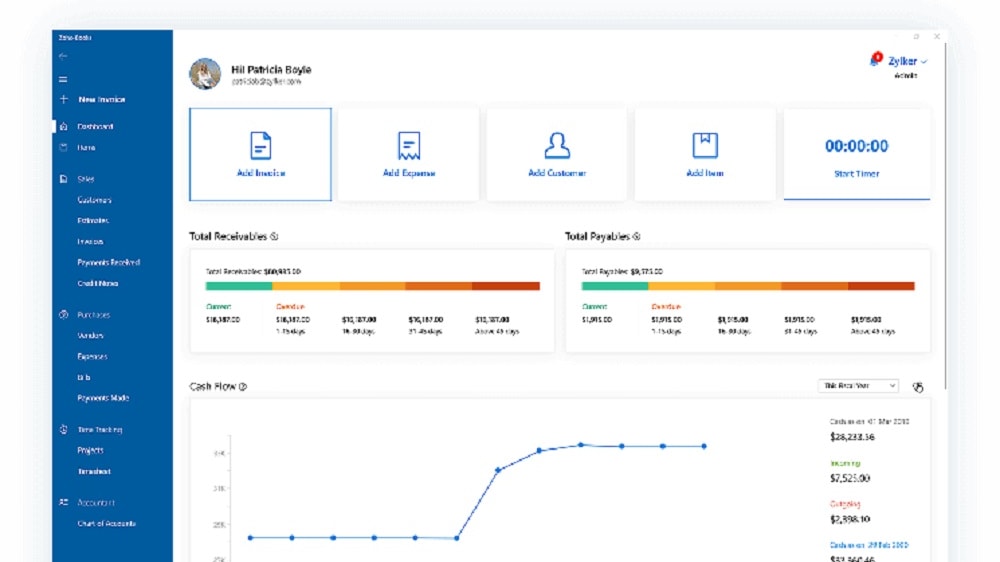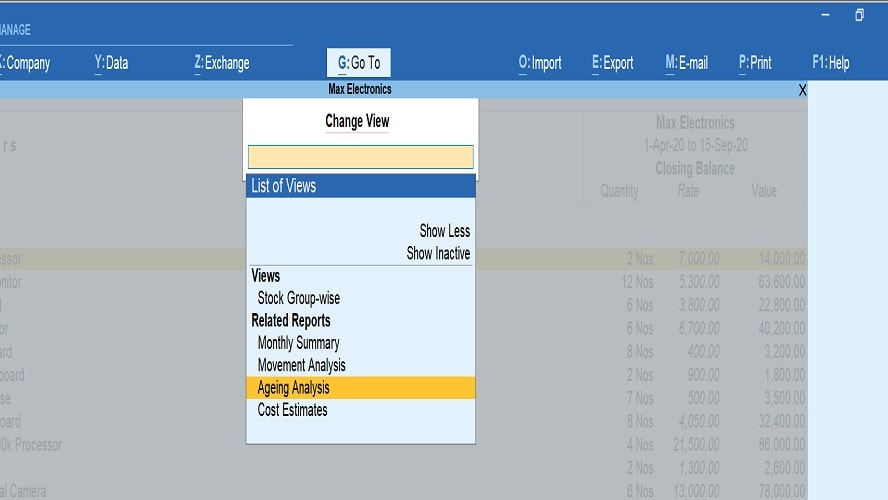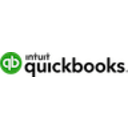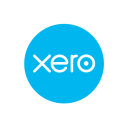Zoho Books vs Tally: Which accounting software is right for you?
- 01Zoho Books vs TallyPrime: overview
- 02What's the difference between Zoho Books and TallyPrime?
- 03Zoho Books pros and cons
- 04TallyPrime pros and cons
- 05Zoho Books compared to TallyPrime
- 06TallyPrime compared to Zoho Books
- 07Features comparison
- 08Zoho Books vs TallyPrime: Which is the best for your business?
- 09Promotions on Accounting software
- 10Alternatives to Zoho Books & TallyPrime
Save up to $100 on Zoho Books
Save up to $100 on Zoho Books
Efficient accounting is crucial for businesses to manage their finances, track expenses, and ensure compliance with tax regulations. Two prominent accounting software options, Zoho Books and Tally, offer a range of features to streamline your financial operations. In this article, we'll explore the similarities and differences between these two solutions.
While both Zoho Books and Tally serve as comprehensive accounting tools, they possess unique attributes and functionalities that cater to distinct needs. By understanding these distinctions and examining their key features, you can make an informed decision about which accounting software is the best fit for your business. Let's delve into the comparison of Zoho Books vs Tally.
Zoho Books vs TallyPrime: overview
Zoho Books and Tally are two prominent contenders in the realm of accounting software, each bringing its unique set of strengths to cater to diverse financial management needs.
Zoho Books distinguishes itself with its user-friendly interface and comprehensive accounting features. It is particularly favored by small and medium-sized businesses for its ability to simplify bookkeeping tasks and streamline financial operations. Tally, on the other hand, is known for its robust accounting capabilities and long-standing reputation in the industry. It is highly regarded for its powerful financial reporting and analysis tools, making it a preferred choice for businesses that require in-depth financial insights and compliance with complex tax regulations.
When deciding between Zoho Books and Tally, it's essential to assess your specific business needs and financial requirements. If you prioritize user-friendly accounting with comprehensive features, Zoho Books may be the right fit for you. However, if your business demands advanced financial reporting and compliance features, Tally could be the more appropriate choice.
What's the difference between Zoho Books and TallyPrime?


Zoho Books and Tally are both powerful accounting software solutions, but they have distinct differences that make them suitable for different business needs.
One of the fundamental differences between Zoho Books and Tally is their approach to accounting. Zoho Books is a cloud-based accounting software, which means you can access your financial data from anywhere with an internet connection. It offers the flexibility of online collaboration and real-time updates. On the other hand, Tally is traditionally installed on a local computer, and data is stored on-premises. This can be advantageous for businesses with security concerns or those operating in areas with unreliable internet connectivity.
Another significant difference is in the range of features and functionalities they offer. Zoho Books provides a comprehensive set of accounting tools, including invoicing, expense tracking, bank reconciliation, and financial reporting. It also offers features like inventory management and project tracking. Tally, on the other hand, is known for its robust financial accounting capabilities. It excels in complex financial reporting, statutory compliance, and tax management. If your business primarily requires in-depth financial analysis and compliance, Tally may be the preferred choice.
Integration capabilities vary as well. Zoho Books integrates seamlessly with other Zoho applications and offers integrations with various third-party software, making it suitable for businesses looking to create an integrated software ecosystem. Tally, while it offers some integrations, may have limitations in this regard, particularly when compared to a cloud-based solution like Zoho Books.
Furthermore, the user experience differs between the two. Zoho Books is known for its user-friendly interface and ease of use, making it accessible for businesses without extensive accounting expertise. Tally, while powerful, may have a steeper learning curve and is often considered more suitable for experienced accountants.
$100 in Zoho Wallet credits on Zoho Books
Get $100 in Zoho Wallet credits on Zoho Books and up to $100 savings with Secret.
Zoho Books pros and cons
What are the advantages of Zoho Books?
- User-friendly interface: Zoho Books features an intuitive and user-friendly interface that makes it accessible for users with varying levels of accounting expertise. This ease of use can save time and reduce the learning curve for your team.
- Cloud-based accessibility: Being a cloud-based solution, Zoho Books allows you to access your financial data from anywhere with an internet connection. This is especially beneficial for remote work and collaboration with team members or accountants in different locations.
- Comprehensive accounting features: Zoho Books offers a wide range of accounting features, including invoicing, expense tracking, bank reconciliation, and financial reporting. It also supports multiple currencies and tax regulations, making it suitable for international businesses.
- Integration capabilities: Zoho Books integrates seamlessly with other Zoho applications, as well as various third-party software, allowing you to create an integrated software ecosystem that meets your specific business needs.
- Affordable pricing: Zoho Books offers competitive pricing plans, making it an affordable choice for small and medium-sized businesses. The flexible pricing options cater to businesses with varying financial requirements.
What are the disadvantages of Zoho Books?
- Limited advanced accounting features: While Zoho Books is robust, it may lack some advanced accounting features that larger enterprises or highly specialized industries require. Businesses with complex accounting needs may need to consider alternative solutions.
- Integration complexity: While Zoho Books offers integration options, setting up and configuring these integrations can sometimes be complex, especially for users who are not tech-savvy.
- Customization limitations: Zoho Books provides customization options, but they may not be as extensive as some other accounting software solutions. Highly tailored reporting or specific workflows may be challenging to achieve.
- Customer support response times: Some users have reported longer response times from Zoho's customer support when compared to other software providers. This could potentially affect the speed at which you can resolve issues or get assistance.
- Learning curve for advanced features: While the basic features are user-friendly, mastering more advanced capabilities in Zoho Books may require some training or time investment. Users with complex accounting needs may find the learning curve steeper.
Compare Zoho Books to other tools
TallyPrime pros and cons
What are the advantages of TallyPrime?
- Robust financial accounting: Tally is renowned for its strong financial accounting capabilities. It excels in areas like ledger management, journal entries, and financial reporting, making it a preferred choice for businesses with complex accounting needs.
- Local installation: Tally is typically installed locally on a computer, which can be advantageous for businesses with security concerns or those operating in areas with unreliable internet connectivity. Data is stored on-premises, giving you direct control over your financial data.
- Compliance and taxation: Tally offers comprehensive tools for statutory compliance and tax management. It supports various tax regulations and provides features to generate tax reports and filings accurately.
- Data security: As an on-premises solution, Tally provides an added layer of data security. You have full control over your data, reducing the risk of data breaches associated with cloud-based solutions.
- Cost-effective: Tally is often considered cost-effective, especially for businesses with straightforward accounting needs. The initial purchase cost and annual renewal fees are typically lower than some cloud-based alternatives.
What are the disadvantages of TallyPrime?
- Limited cloud accessibility: Tally's on-premises installation can be a limitation for businesses that require remote access to their financial data. Cloud-based solutions offer greater accessibility, especially in today's remote work environment.
- Learning curve: Tally may have a steeper learning curve, particularly for users who are not familiar with accounting principles or those transitioning from other accounting software. Extensive training may be necessary to maximize its capabilities.
- Lack of real-time collaboration: Tally's local installation limits real-time collaboration. Multiple users cannot simultaneously work on the same dataset, which can be a drawback for businesses with distributed teams.
- Limited integration options: While Tally offers some integration options, they may not be as extensive as those of cloud-based accounting software. This could be a limitation if your business relies on a wide range of integrated tools.
- Updates and support costs: Tally often requires paid updates and support packages, which can increase the total cost of ownership over time. These costs can add up, especially if you require ongoing support or updates.
Zoho Books compared to TallyPrime
Zoho Books and Tally are both popular accounting software options. Zoho Books, a cloud-based solution, offers accessibility and a user-friendly interface, making it suitable for small to medium-sized businesses. It features comprehensive accounting tools and integrates with various third-party applications.
On the other hand, Tally, a traditional on-premises software, excels in robust financial accounting and statutory compliance. It offers enhanced data security and is preferred by businesses with complex accounting needs. The choice between them depends on factors like accessibility preferences, the depth of accounting requirements, and integration needs, with Zoho Books catering to a wider range of users.
Is Zoho Books better than TallyPrime?
Determining whether Zoho Books is superior to Tally hinges on your specific business needs. Zoho Books offers a user-friendly, cloud-based accounting solution with features such as invoicing, expense tracking, and financial reporting, catering to small to medium-sized businesses seeking accessibility and integration capabilities.
Conversely, Tally is an on-premises software celebrated for its robust financial accounting and statutory compliance capabilities, ideal for businesses with complex financial requirements and a preference for data security. The choice should be based on factors like accounting depth, accessibility, integration requirements, and budget considerations, with each tool excelling in different aspects of financial management.
What is Zoho Books best used for?
Zoho Books is best used for small to medium-sized businesses seeking a user-friendly, cloud-based accounting solution. It simplifies financial operations, offering tools for invoicing, expense tracking, bank reconciliation, and reporting.
Zoho Books is particularly effective for businesses needing accessibility, as it allows users to work from anywhere with internet access. It accommodates multiple currencies and tax regulations, making it suitable for international operations. Additionally, its integration capabilities enable users to create a customized software ecosystem. Overall, Zoho Books is a versatile accounting tool that streamlines financial management for businesses looking for convenience, flexibility, and efficiency in their accounting processes.
Can Zoho Books replace TallyPrime?
Whether Zoho Books can replace Tally depends on your specific business needs. Zoho Books offers a user-friendly, cloud-based accounting solution with features for invoicing, expense tracking, and financial reporting, suitable for small to medium-sized businesses. However, Tally excels in complex financial accounting and statutory compliance, offering enhanced data security as an on-premises software.
While Zoho Books may suffice for businesses with straightforward accounting requirements, Tally remains a preferred choice for those with complex financial needs. The decision to replace Tally with Zoho Books should be based on factors like the depth of accounting requirements, accessibility preferences, and integration needs.
Is Zoho Books cheaper than TallyPrime?
Zoho Books is often considered a more cost-effective option than Tally for many businesses. Zoho Books’s pricing offers competitive plans that cater to small and medium-sized businesses, with flexible pricing options based on usage and the number of users.
In contrast, Tally typically involves an initial purchase cost, annual renewal fees, and potential additional costs for support and updates. While the exact cost comparison depends on your specific needs and the size of your business, Zoho Books often provides a more budget-friendly solution, making it a popular choice for those looking to manage their finances effectively without breaking the bank.
Is there a better Accounting software than Zoho Books?
While Zoho Books offers a comprehensive set of accounting features, it's essential to explore alternative accounting software options to ensure you find the best fit for your specific financial management requirements.
There are several noteworthy alternatives to Zoho Books in the accounting software landscape, including QuickBooks, Xero, FreshBooks, and Wave.
Selecting the ideal accounting software depends on your business's unique financial needs, preferences, and objectives. If you prioritize user-friendliness, cloud-based accessibility, and integration capabilities, Zoho Books may align perfectly with your goals. However, exploring these alternatives can provide valuable insights and help you make a well-informed decision that best suits your specific accounting needs.
$100 in Zoho Wallet credits on Zoho Books
Get $100 in Zoho Wallet credits on Zoho Books and up to $100 savings with Secret.
TallyPrime compared to Zoho Books
Tally and Zoho Books are both prominent accounting software options, but they have distinct differences. Tally is known for its robust financial accounting capabilities and statutory compliance features, making it an ideal choice for businesses with complex accounting needs. It operates as an on-premises solution, offering enhanced data security.
On the other hand, Zoho Books is a cloud-based platform that provides user-friendly accounting tools, including invoicing, expense tracking, and bank reconciliation. It is well-suited for small to medium-sized businesses looking for accessibility and integration capabilities. The choice between Tally and Zoho Books depends on factors like accounting requirements, accessibility preferences, and integration needs.
Is TallyPrime better than Zoho Books?
The superiority of Tally over Zoho Books depends on the specific financial management needs of your business. Tally is renowned for its robust financial accounting and statutory compliance capabilities, making it the preferred choice for businesses with complex financial requirements and a preference for on-premises software.
In contrast, Zoho Books offers a user-friendly, cloud-based accounting solution with features like invoicing, expense tracking, and accessibility, appealing to small to medium-sized businesses seeking convenience and integration capabilities. The decision should be based on factors such as accounting depth, accessibility, integration requirements, and budget considerations, with Tally excelling in certain aspects while Zoho Books offers its advantages.
What is TallyPrime best used for?
Tally is best used for businesses with complex financial accounting needs and a focus on statutory compliance. As an on-premises accounting software, Tally provides robust tools for ledger management, journal entries, and financial reporting. It excels in managing complex tax calculations and compliance requirements, making it a preferred choice for businesses operating in regions with intricate tax regulations. Tally's enhanced data security also appeals to those concerned with data privacy.
While it may have a steeper learning curve, Tally is well-suited for organizations seeking comprehensive financial management and adherence to statutory requirements in areas such as taxation, audit, and financial reporting.
Can TallyPrime replace Zoho Books?
Whether Tally can replace Zoho Books depends on your specific financial management needs. Tally, with its focus on robust financial accounting and statutory compliance, is better suited for businesses with complex accounting requirements and a preference for on-premises software.
In contrast, Zoho Books offers user-friendly cloud-based accounting tools, making it ideal for small to medium-sized businesses seeking accessibility and integration capabilities. While Tally excels in certain areas, it may lack the ease of use and online collaboration that Zoho Books offers. The decision should hinge on factors like the depth of accounting needs, accessibility preferences, and integration requirements.
Is TallyPrime cheaper than Zoho Books?
Tally is often considered a cost-effective accounting solution compared to Zoho Books for certain businesses. Tally’s pricing typically involves an initial purchase cost and annual renewal fees, which may be lower than Zoho Books' subscription-based pricing for some users. However, it's essential to consider the total cost of ownership, including support, updates, and potential customization expenses.
Zoho Books offers competitive pricing plans with various tiers to accommodate different business sizes and needs, potentially making it cost-effective for small to medium-sized businesses. The cost comparison between Tally and Zoho Books ultimately depends on your specific business requirements and long-term financial considerations.
Is there a better Accounting software than TallyPrime?
While Tally is known for its robust financial accounting and compliance capabilities, it's prudent to explore alternative accounting software options to determine the best match for your specific financial management needs.
Several noteworthy alternatives to Tally in the accounting software realm include QuickBooks, Xero, FreshBooks, and Wave.
Selecting the ideal accounting software depends on your business's unique financial requirements, preferences, and goals. If you prioritize strong financial accounting, statutory compliance, and enhanced data security, Tally may align perfectly with your financial management objectives. However, evaluating these alternatives can offer valuable insights and assist you in making an informed decision that best suits your specific accounting needs.
Features comparison
Zoho Books Offers Better Collaboration Features than Tally

Zoho Books shines in fostering collaboration—an area where it stands out notably from Tally. Zoho Books empowers businesses by enabling controlled access to financial data for teams, accountants, or financial advisors. This collaborative feature facilitates seamless teamwork and enhances financial management practices.
For instance, a business owner can grant their accountant access to specific financial records, allowing them to review and update information as needed. This controlled collaboration ensures that all stakeholders are on the same page and can work together efficiently. It also supports real-time data sharing, which can be particularly valuable for businesses operating in dynamic environments.
This collaborative approach offered by Zoho Books can significantly streamline operations, boost efficiency, and contribute to more effective financial management. In contrast, Tally, while a robust accounting tool, may not provide the same level of collaborative functionality, potentially limiting seamless teamwork and financial data access.
Zoho Books Leads in Integration Versatility Over Tally
Integration capability is a pivotal aspect of SaaS software, and both Zoho Books and Tally exhibit strong features in this domain. Nevertheless, Zoho Books outshines Tally in this department, boasting extensive compatibility with numerous third-party applications that significantly augment its versatility.
Zoho Books seamlessly integrates with various Zoho business and productivity apps, creating a unified ecosystem for streamlined operations. Moreover, it excels in connecting with popular external platforms such as PayPal, Stripe, Square, and more, broadening its functional scope considerably. For instance, Zoho Books can effortlessly sync with a payment gateway like PayPal, simplifying online transactions and ensuring accurate financial records.
Conversely, while Tally does offer integration capabilities, they are not as extensive or seamless as those of Zoho Books. Its integration options might be suitable for basic accounting needs but fall short when it comes to comprehensive, interconnected business processes. For instance, Tally's integration with payment gateways may not provide the same level of flexibility and depth as Zoho Books.
Zoho Books Surpasses Tally in User-Friendliness and Support

When it comes to the ease of use, Zoho Books takes the lead, providing an intuitive and modern dashboard that caters to users of all technical backgrounds. Its user interface is designed with clarity in mind, ensuring that even those less tech-savvy can effortlessly navigate the software. Every function is thoughtfully labeled and accessible with just a few clicks, streamlining the user experience.
On the contrary, Tally, while undeniably powerful, may present a steeper learning curve for newcomers due to its relatively intricate interface. The complexity of Tally's design might seem daunting, particularly to those not well-versed in accounting software.
TallyPrime Excels in Invoicing Customization for Complex Business Needs

When it comes to invoicing capabilities, both tools offer essential features. However, TallyPrime distinguishes itself with a highly optimized system for recording invoices, replete with a multitude of configurations and support for multiple billing modes.
TallyPrime's invoicing system is designed to cater to a wide range of business needs, offering a high degree of customization and flexibility. For instance, businesses with intricate invoicing requirements, such as those dealing with international clients, can configure invoices to include specific details, tax components, and currency options. This level of adaptability ensures that the invoicing process aligns seamlessly with the business's unique workflow.
In contrast, while Zoho Books offers invoicing capabilities, it may not provide the same level of customization and complexity management as TallyPrime. Businesses with straightforward invoicing needs may find the alternative tool suitable, but TallyPrime stands out as the preferred choice for those requiring advanced invoicing solutions.
Zoho Books Excels Ahead of Tally with Advanced Expense Tracking and Mobile Receipt Capture

Zoho Books takes the lead by providing a simple yet comprehensive feature set. It allows users to effortlessly record and categorize expenses, streamlining the financial management process.
One distinctive feature that sets Zoho Books apart from Tally is its mobile receipt capture functionality. With this tool, users can snap photos of receipts directly from their mobile devices and attach them to expense records. This feature ensures that every expenditure is meticulously documented, providing a clear and accurate overview of business spending.
In contrast, Tally, while proficient in several accounting aspects, does not highlight a similar mobile receipt capture feature. This can be a critical differentiator for businesses seeking a more detailed and convenient approach to expense tracking.
Zoho Books and Tally are Equally Robust in Inventory Management

When it comes to inventory management, both Zoho Books and Tally demonstrate remarkable capabilities that cater to a wide spectrum of business needs.
Zoho Books stands out with its automation in order management, tracking inventory levels, and delivering insights into stock levels. For instance, it enables businesses to set reorder points, automatically generating purchase orders when stock levels drop below predefined thresholds. This automation streamlines the inventory replenishment process, reducing the risk of stockouts or overstocking.
On the other hand, Tally offers comprehensive features such as godown management, support for multiple stock valuation methods, manufacturing capabilities, and batch and expiry date management. These functionalities are crucial for businesses dealing with intricate inventory scenarios, especially in industries where managing different batches and expiration dates is essential.
Tally Provides More Comprehensive Business Reporting than Zoho Books

Both Zoho Books and Tally offer financial reporting capabilities, yet Tally distinguishes itself by offering an extensive arsenal of over 400 business reports. These readily available reports cover a wide spectrum of financial aspects and provide businesses with invaluable insights for making informed decisions.
For example, Tally's report library includes reports for profit and loss analysis, cash flow statements, balance sheets, tax liability calculations, and more. These reports can be customized to suit specific business needs and can help businesses gain a comprehensive understanding of their financial health.
On the other hand, while Zoho Books offers essential financial reports, it may not match the depth and breadth of Tally's reporting capabilities. This can be a critical differentiator for businesses seeking a comprehensive and data-rich approach to financial reporting and analysis.
Subscribe to our newsletters.
No FOMO here. Stay up-to-date on all the latest deals and news with our monthly newsletter straight to your inbox like 125,000+ entrepreneurs (+ Get 10% off on on our Premium Membership!)
Zoho Books vs TallyPrime: Which is the best for your business?
Zoho Books is the best tool for you if:
- You need a user-friendly accounting solution with a modern interface for streamlined financial management
- You want a cloud-based accounting software that offers accessibility from anywhere with an internet connection
- Your business requires comprehensive accounting features, including invoicing, expense tracking, and bank reconciliation
- You are a small to medium-sized business looking for affordable pricing plans that cater to your budget
- You seek integration capabilities to create a customized software ecosystem that meets your specific business needs
TallyPrime is the best tool for you if:
- Your business has complex financial accounting requirements and requires strong statutory compliance features
- You prefer on-premises software with enhanced data security and control over your financial data
- You operate in regions with intricate tax regulations and need comprehensive tools for tax management and reporting
- You can invest in an initial purchase cost and annual renewal fees for cost-effective long-term financial management
- You require features like batch and expiry date management, godown management, and support for multiple stock valuation methods in your inventory management
$100 in Zoho Wallet credits on Zoho Books
Get $100 in Zoho Wallet credits on Zoho Books and up to $100 savings with Secret.
Alternatives to Zoho Books & TallyPrime
Promotions on Accounting software
Start saving on the best SaaS with Secret.
Secret has already helped tens of thousands of startups save millions on the best SaaS like Zoho Books, TallyPrime & many more. Join Secret now to buy software the smart way.








